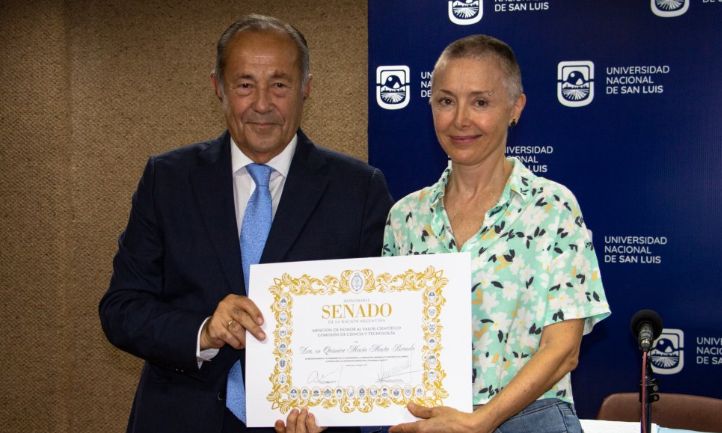Luis Federico Leloir was born on September 6, 1906, in Buenos Aires and passed away on December 2, 1987, in the same city. He was a renowned Argentine biochemist, remembered for receiving the Nobel Prize in Chemistry. Leloir specialized in scientific research, with carbohydrates as the central theme of his studies.
Interest in multiple sciences
The Argentine physician is remembered not only for his interest in medicine but also for his contributions to other sciences such as physics, mathematics, and chemistry. He managed to combine these disciplines to produce valuable scientific advances.
Academic formation
Two years after his birth, Leloir’s family settled in the Buenos Aires province countryside. He studied medicine at the Faculty of Medicine of the University of Buenos Aires (UBA). After graduating, he devoted himself to research and pursued further training in physics and chemistry at the Faculty of Exact and Natural Sciences at UBA.
He also studied at the University of Cambridge in the United Kingdom, where he joined the Biochemical Laboratory. It was there that carbohydrates and their metabolism became the focus of his research.
Professional career
Throughout his career, Leloir held various positions in multiple institutions. He was a researcher in the Department of Pharmacology at the University of Washington in the United States, and later at the Instituto de Investigaciones Bioquímicas de la Fundación Campomar in Argentina, where he also served as director.
His work, along with his team, advanced studies on sugar nucleotides and their role in metabolism. Although the institute gained recognition for its research, it faced funding difficulties. Support came from organizations such as the National Institutes of Health (NIH), the Rockefeller Foundation, and Argentina’s CONICET (National Scientific and Technical Research Council).
In addition, he created the Instituto de Investigaciones Bioquímicas within the Faculty of Exact and Natural Sciences at UBA, further strengthening Argentina’s scientific infrastructure.
The Nobel Prize in Chemistry
In 1970, Leloir was awarded the Nobel Prize in Chemistry, the highest distinction in the field, for his studies on sugar nucleotides and their connection to carbohydrates. His research clarified how food transforms sugars and contributed to the understanding of galactosemia, a hereditary disease that impairs sugar assimilation.
Other recognitions followed, such as the Bunge and Born Foundation Prize in Argentina and the Gairdner Foundation International Award in Canada. These prizes highlighted the significance of his contributions to biological and medical research.
Legacy in science
Leloir’s work expanded knowledge on metabolic diseases, conditions related to the way the body produces energy. His studies on how organisms use the energy from sugars placed him among the most outstanding Argentine scientists.
Beyond the Nobel Prize, he was named Illustrious Citizen of Buenos Aires and was a member of leading scientific associations such as the Biochemical Society in the United Kingdom, the Royal Society of London, and the Academia de Ciencias Exactas, Físicas y Naturales in Argentina.
Until today, Luis Federico Leloir is remembered for his contributions to science, his ability to attract the attention of researchers worldwide, and his example as one of Argentina’s most respected scientists. The Nobel Prize in Chemistry underscored the global importance of his research and his lifelong dedication to advancing scientific knowledge.



